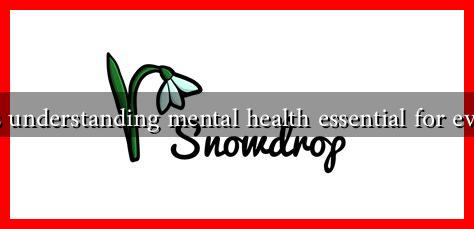-
Table of Contents
Why is Understanding Mental Health Essential for Everyone
Mental health is a crucial aspect of overall well-being that affects how we think, feel, and act. It influences our ability to handle stress, relate to others, and make choices. Despite its importance, mental health is often overlooked or stigmatized, leading to a lack of understanding and support. This article explores why understanding mental health is essential for everyone, highlighting its impact on individuals, families, and society as a whole.
The Prevalence of Mental Health Issues
According to the World Health Organization (WHO), approximately 1 in 4 people will experience a mental health issue at some point in their lives. This statistic underscores the importance of understanding mental health, as it is likely that we will encounter someone affected by these issues, whether it be a friend, family member, or colleague. Common mental health disorders include:
- Depression
- Anxiety disorders
- Bipolar disorder
- Schizophrenia
- Post-traumatic stress disorder (PTSD)
Understanding these conditions can foster empathy and support for those who are struggling, creating a more compassionate society.
The Impact of Mental Health on Daily Life
Mental health significantly affects various aspects of daily life, including:
- Work Performance: Mental health issues can lead to decreased productivity, absenteeism, and higher turnover rates. A study by the American Psychological Association found that employees with untreated mental health conditions cost employers $193 billion annually in lost productivity.
- Relationships: Mental health can influence how we interact with others. Poor mental health can lead to misunderstandings, conflicts, and strained relationships.
- Physical Health: There is a strong connection between mental and physical health. Conditions like depression and anxiety can lead to physical ailments such as heart disease, obesity, and diabetes.
By understanding mental health, individuals can take proactive steps to maintain their well-being and support others in their journey.
Breaking the Stigma
Stigma surrounding mental health remains a significant barrier to seeking help. Many individuals fear judgment or discrimination, which can prevent them from accessing necessary resources. Understanding mental health can help break down these barriers by:
- Promoting open conversations about mental health issues.
- Encouraging individuals to seek help without fear of judgment.
- Educating communities about the realities of mental health conditions.
For instance, campaigns like Mental Health Awareness Month and initiatives by organizations such as the National Alliance on Mental Illness (NAMI) aim to raise awareness and reduce stigma. These efforts highlight the importance of understanding mental health for fostering a supportive environment.
Empowering Individuals and Communities
Understanding mental health empowers individuals to take charge of their well-being. Here are some ways this knowledge can be beneficial:
- Self-Awareness: Recognizing signs of mental health issues in oneself can lead to early intervention and treatment.
- Support Systems: Knowledgeable individuals can provide better support to friends and family members facing mental health challenges.
- Community Resources: Understanding mental health can lead to increased utilization of community resources, such as counseling services and support groups.
For example, a case study from a community in California showed that increased mental health education led to a 30% rise in individuals seeking therapy, demonstrating the positive impact of understanding mental health.
Conclusion
Understanding mental health is essential for everyone, as it affects our daily lives, relationships, and communities. By recognizing the prevalence of mental health issues, breaking down stigma, and empowering individuals, we can create a more supportive and informed society. As we continue to prioritize mental health education and awareness, we pave the way for healthier individuals and communities. Remember, mental health is just as important as physical health, and understanding it is the first step toward fostering a compassionate and supportive environment for all.
For more information on mental health resources, visit NAMI or the World Health Organization.

